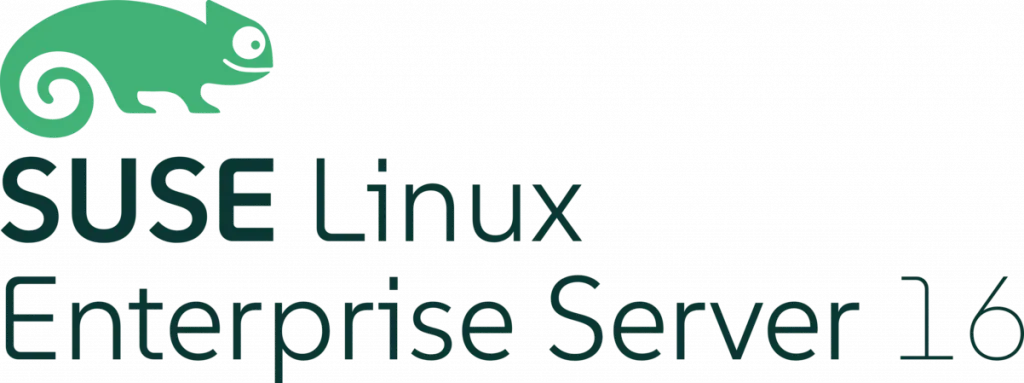
TL;DR
SUSE releases Linux Enterprise Server 16, integrating AI to boost efficiency and cut costs, with features like secure AI integration and a 16-year support lifecycle.
Key Points
Highlight key points with color coding based on sentiment (positive, neutral, negative).SUSE Linux Enterprise Server 16 is the first enterprise Linux to integrate agentic AI, enhancing operational efficiency and reducing costs.
The introduction of the Model Context Protocol (MCP) provides a secure, extensible framework for AI integration without vendor lock-in.
SLES 16 offers a 16-year support lifecycle, ensuring long-term stability and security.
The transition to SELinux as the default security framework and the integration of Post-Quantum Cryptography (PQC) algorithms enhance the security posture of SLES 16.
SLES 16 is the first enterprise Linux distribution to feature reproducible builds, allowing for independent verification of software packages.
Key Numbers
Present key numerics and statistics in a minimalist format.The version number of SUSE Linux Enterprise Server.
The total support lifecycle for SUSE Linux Enterprise Server.
The range of minor releases for SUSE Linux Enterprise Server.
The duration of support for each minor release.
The duration of General Support
The duration of Long Term Support
The version number of the kernel used.
The version number of glibc used.
The version number of systemd used.
The version number of Python used.
The version number of Perl used.
The version number of grub2 used.
The version number of OpenSSH used.
The number of policy modules for SELinux.
The version number of OpenSSL used.
The version number of Libgcrypt used.
The version number of Mozilla NSS used.
The version number of Go used.
Stakeholder Relationships
An interactive diagram mapping entities directly or indirectly involved in this news. Drag nodes to rearrange them and see relationship details.Organizations
Key entities and stakeholders, categorized for clarity: people, organizations, tools, events, regulatory bodies, and industries.SUSE is responsible for developing and launching SUSE Linux Enterprise Server 16, which integrates agentic AI and offers a 16-year support lifecycle.
Tools
Key entities and stakeholders, categorized for clarity: people, organizations, tools, events, regulatory bodies, and industries.Agama is the new API-driven installer introduced in SUSE Linux Enterprise Server 16, replacing the YaST installer.
Cockpit is used in SUSE Linux Enterprise Server 16 for 1:1 remote management, providing a modern web-based interface.
Ansible is included in SUSE Linux Enterprise Server 16 to support standardized roles for consistent OS-level configuration.
BTRFS and Snapper in SUSE Linux Enterprise Server 16 extend automated filesystem snapshots to cloud images, enhancing system reliability.
Events
Key entities and stakeholders, categorized for clarity: people, organizations, tools, events, regulatory bodies, and industries.The release marks the introduction of agentic AI and the Model Context Protocol in SUSE Linux Enterprise Server 16.
Industries
Key entities and stakeholders, categorized for clarity: people, organizations, tools, events, regulatory bodies, and industries.SUSE Linux Enterprise Server 16 is designed to meet the next generation of IT challenges, making it ideal for data centers.
The high security and reliability of SUSE Linux Enterprise Server 16 benefit the finance and banking sectors.
SUSE Linux Enterprise Server 16 is well-suited for healthcare environments requiring compliance with strict data protection regulations.
The integration of agentic AI in SUSE Linux Enterprise Server 16 supports automation in manufacturing and industrial settings.
Timeline of Events
Timeline of key events and milestones.SUSE announced the release of SUSE Linux Enterprise Server 16, marking it as the first enterprise Linux to integrate agentic AI.
SUSE Linux Enterprise Server 16 became generally available to all SUSE customers and partners.
The server is prepared for the year 2038 and beyond, addressing the 32-bit time_t counter overflow issue.
The server offers a total of 16 years of support, with 7 minor releases planned from 16.0 to 16.6, each released every November.
Each minor release will have 5 years of support, including 2 years of General Support and 3 years of optional Long Term Support (LTS).
SUSE Linux Enterprise Server 16, or SLES 16 if you're in the know, is stirring up the enterprise Linux scene with its fresh integration of agentic AI. This isn't just a flashy add-on; it's a strategic move aimed at boosting operational efficiency while keeping costs in check. At the heart of this release is the Model Context Protocol (MCP), a secure and flexible framework designed to keep you from being tied down to a single vendor. With a whopping 16-year support lifecycle, instant rollback features, reproducible builds, and a user-friendly management interface, SLES 16 is all about making operations smoother and future-proofing your enterprise infrastructure.
Now, let's talk about this agentic AI. It's a real game-changer for enterprises, offering deeper insights and automated management. What does that mean for you? Less time spent on troubleshooting and a faster route to market for those mission-critical applications. The MCP standard is designed for seamless AI operations integration, allowing for AI-powered local administration through a simple browser-based interface and command line. It's all about reducing operational overhead and making life a bit easier for IT teams.
SLES 16 is built to last, with a 16-year support commitment that promises stability and security well into the future. It's ready for the post-2038 world without the need for disruptive upgrades. The instant rollback capabilities are a lifesaver, letting administrators quickly revert almost any change. Plus, reproducible builds offer transparency and control, allowing for independent verification and rebuilding of the Linux distribution from source.
This platform is primed for AI integration with its standards-based architecture, supporting connections to any Large Language Model (LLM) provider. SLES 16 also ups its game with modernized systems management, enhanced security through SELinux, and post-quantum cryptography to fend off future threats. Built on the latest stable components, it's ready to tackle whatever IT challenges come next. Available to all SUSE customers and partners, SLES 16 offers tailored solutions for specific enterprise needs, including optimized versions for SAP applications and high availability extensions. New tools like Agama for installation, Cockpit for server management, and Ansible for automation round out its capabilities, making it a solid choice for modern IT environments.
Additional Resources
Enjoyed it?
Get weekly updates delivered straight to your inbox, it only takes 3 seconds!Subscribe to our weekly newsletter DevOpsLinks to receive similar updates for free!
Give a Pawfive to this post!
Start writing about what excites you in tech — connect with developers, grow your voice, and get rewarded.
Join other developers and claim your FAUN.dev() account now!
FAUN.dev()
FAUN.dev() is a developer-first platform built with a simple goal: help engineers stay sharp withou…

DevOpsLinks #DevOps
FAUN.dev()
@devopslinksDeveloper Influence
18
Influence
1
Total Hits
132
Posts


















